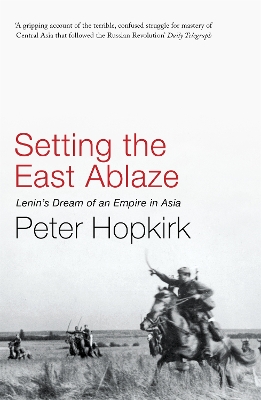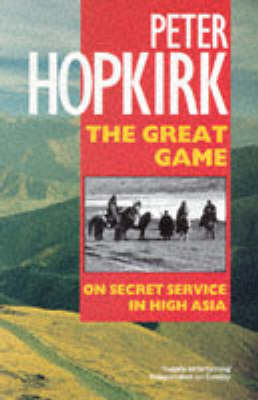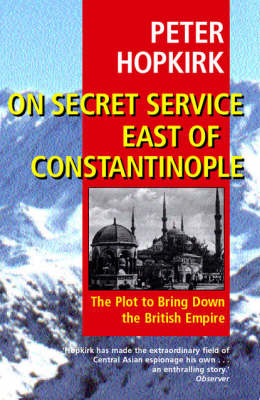Not a
3 total works
'Let us turn our faces towards Asia', exhorted Lenin when the long-awaited revolution in Europe failed to materialize. 'The East will help us conquer the West.' Peter Hopkirk's book tells for the first time the story of the Bolshevik attempt to set the East ablaze with the heady new gospel of Marxism. Lenin's dream was to liberate the whole of Asia, but his starting point was British India. A shadowy undeclared war followed. Among the players in this new Great Game were British spies, Communist revolutionaries, Muslim visionaries and Chinese warlords - as well as a White Russian baron who roasted his Bolshevik captives alive. Here is an extraordinary tale of intrigue and treachery, barbarism and civil war, whose violent repercussions continue to be felt in Central Asia today.
The "Great Game" was an imperial, political, diplomatic, and military enterprise in which intrepid individuals played for high stakes in a struggle that stretched from the Causasus in the West to Chinese Turkestan and Tibet in the East. The prize was British India. When play first began, the frontiers of Russia and India lay some 2000 miles apart; by the end, the gap had reduced in some places to just 20 miles. Officers on either side, disguised as holy men and horse traders, or advancing in full uniform, delighted in the play as they sought to learn enemy positions, befriend powerful khans, or discover vital secrets. This book should appeal to those interested in espionage and diplomacy, the history of "High Asia" in Victorian period and superpower relations.
Under the banner of a Holy War, masterminded in Berlin and unleashed from Constantinople, the Germans and the Turks set out in 1914 to foment violent revolutionary uprisings against the British in India and the Russians in Central Asia. It was a new and more sinister version of the old Great Game, with world domination as its ultimate aim. German hawks dreamed of driving the British out of India and creating a vast new Teutonic empire in the East, using their Turkish ally as a springboard. At the same time Turkey's leaders aimed to free the Muslim peoples of Central Asia from the Tsarist yoke - and rule them themselves as part of a new Ottoman empire. The shadowy and often bloody struggle which followed was fought out between the intelligence services of King, Kaiser, Sultan and Tsar. It was to spill over into Persia, Afghanistan, the Caucasus and Central Asia, and be felt as far afield as the United States and China. It was around this colossal conspiracy that John Buchan wove his immortal spy story Greenmantle.
Here, told in epic detail and for the first time, is the extraordinary story of the Turco-German jihad of the First World War, recounted through the adventures and misadventures of the secret agents and others who took part in it. Pieced together from the secret intelligence reports of the day and the long-forgotten memoirs of the participants, Peter Hopkirk's latest narrative is an enthralling sequel to his best-selling The Great Game, and his three earlier works set in Central Asia. It is also highly topical in view of recent events in this volatile region where the Great Game has never really ceased. The rise of Islamic fundamentalism and fears of a resurgent Russia and Germany add greatly to its significance.
Here, told in epic detail and for the first time, is the extraordinary story of the Turco-German jihad of the First World War, recounted through the adventures and misadventures of the secret agents and others who took part in it. Pieced together from the secret intelligence reports of the day and the long-forgotten memoirs of the participants, Peter Hopkirk's latest narrative is an enthralling sequel to his best-selling The Great Game, and his three earlier works set in Central Asia. It is also highly topical in view of recent events in this volatile region where the Great Game has never really ceased. The rise of Islamic fundamentalism and fears of a resurgent Russia and Germany add greatly to its significance.


